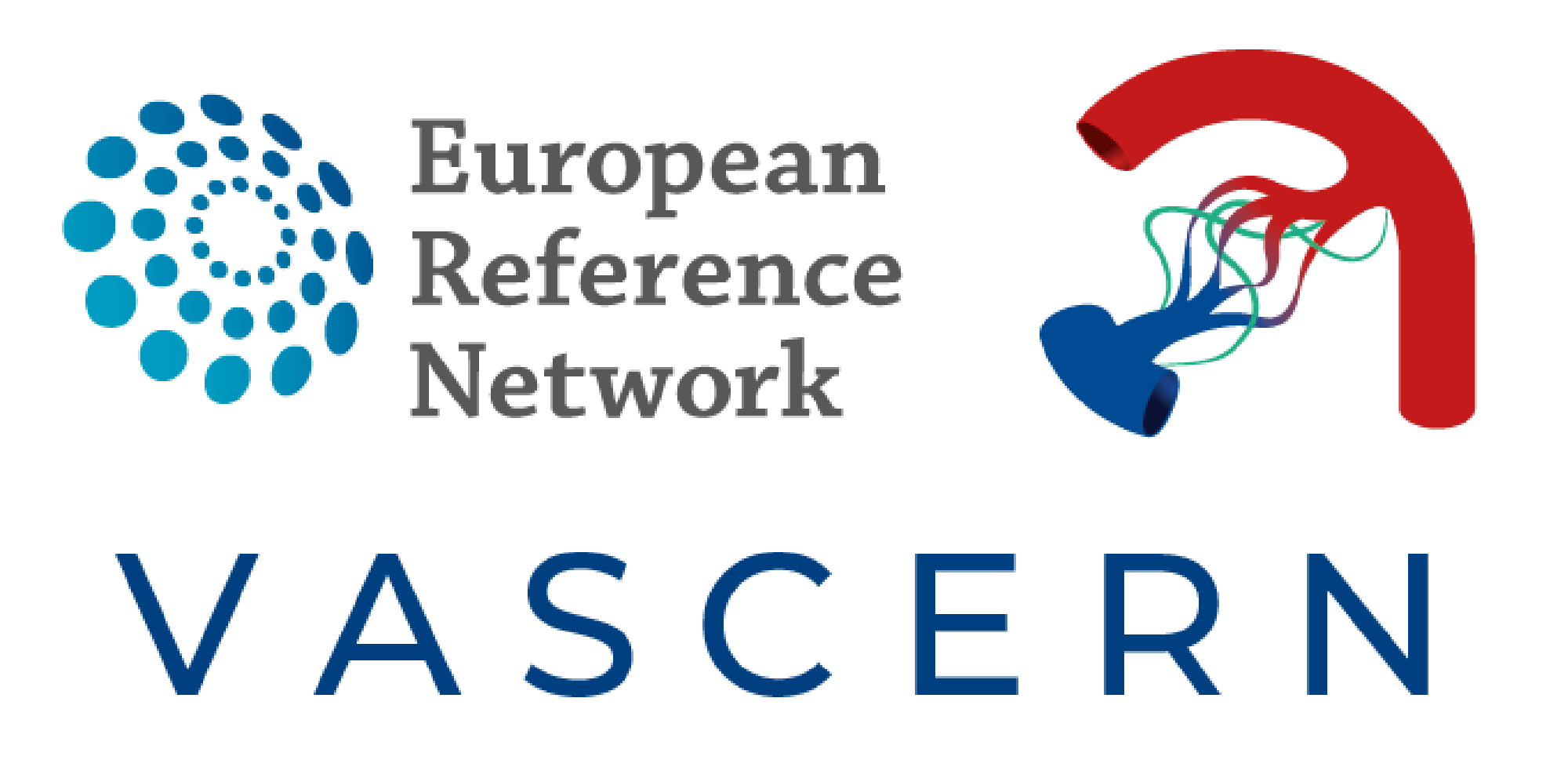The VASCERN Summer School 2024 concluded its six-day programme, with participants leaving enriched with knowledge, skills, and new perspectives on rare vascular diseases. Held in Paris, the school brought together experts, students and patient representatives from across Europe to promote learning, collaboration and discussion on improving patient care.
Each day focused on a different rare vascular disease and was filled with presentations, case discussions, patient perspectives and hands-on activities. Here’s a look back at the week:
Day 1: Heritable Thoracic Aortic Diseases (HTAD) and Medium-Sized Arteries (MSA)
The Summer School began with most of the day dedicated to Heritable Thoracic Aortic Diseases (HTAD). Prof Laura Muiño, Prof Guillaume Jondeau and Dr Anna Sabaté led sessions on the genetics, diagnosis and treatment of conditions such as Marfan syndrome and Loeys-Dietz syndrome.
In the afternoon, practical discussions were held on living with HTAD, including follow-up care, sports, pregnancy and body image. Dr Meike Rybczynski joined the panel to discuss the key aspects of patient life, while HTAD ePAG advocate Iida Korpela shared the patient experience, reminding the audience of the real impact of their work.
To round off the day, Prof Fransiska Malfait and Prof Tristan introduced the students to vascular Ehlers-Danlos syndrome (vEDS). Prof Malfait provided a detailed session on the genetics of vEDS, while Prof Mirault focused on the clinical management of these conditions, emphasising personalised treatment approaches and the importance of multidisciplinary care.







Day 2: Medium-Sized Arteries (MSA) Continues and Neurovascular Diseases
Day 2 continued the exploration of medium-sized arteries (MSA), specifically vEDS, with Dr Michael Frank taking the lead on topics such as arterial dissection and pain management. The participants learnt about the complexities of managing vascular Ehlers-Danlos Syndrome (vEDS) and other MSA conditions. MSA ePAG advocate Eva Collado brought the patient voice to the forefront with a powerful account of living with vEDS.
In the afternoon, the focus shifted to neurovascular diseases, with sessions by Dr Gido Gravesteijn and Prof Hugues Chabriat on the diagnosis, genetics, and patient care of CADASIL. Elisabeth Lisack, NEUROVASC ePAG advocate, closed the day with her session on patient experience.





Day 3: Neurovascular Diseases Continues and Vascular Anomalies
Moyamoya angiopathy, a rare cerebrovascular disease, was the highlight of the morning of Day 3. Dr Stéphanie Guey and Dr Dominique Hervé guided participants through the pathophysiology, clinical presentation, and management of moyamoya, engaging students in hands-on case discussions.
In the afternoon, the focus shifted to Vascular Anomalies (VASCA) with sessions led by Dr Annouk Bisdorff, Dr Michel Wassef, Prof Laurence Boon and Dr Julien Coulie on the classification, diagnosis and management of vascular anomalies such as infantile haemangiomas, venous, capillary, lymphatic and arteriovenous malformations. The patient perspective through a video added a human touch to the scientific content of the day.







Day 4: Vascular Anomalies Continues and Paediatric and Primary Lymphoedema (PPL)
Dr Olivia Boccara opened Day 4 with a comprehensive overview of combined syndromes associated with vascular anomalies, followed by Dr Julien Coulie who led discussions on classification and diagnosis. The day also included a patient perspective video on living with vascular anomalies. Prof Laurence Boon discussed targeted medical treatments. Patient advocate Petra Borgards closed the day by sharing the patient experience of vascular anomalies, giving participants an insightful perspective.
Day 4 also focused on paediatric and primary lymphoedema (PPL). Dr Vaughan Keeley began with an introduction to the genetics and physiopathology of PPL, followed by Prof Sarah Thomis who shared her expertise on the clinical presentation, diagnosis, and management of PPL, including surgical and non-surgical approaches.
The afternoon included hands-on workshops where participants built family trees and engaged in complex case discussions. PPL ePAG advocate Carina Mainka ended the day by sharing her story as the mother of a son with lymphoedema, giving participants an unforgettable insight into living with lymphoedema.






Day 5: Hereditary Haemorrhagic Telangiectasia (HHT)
Day 5 focused on Hereditary Haemorrhagic Telangiectasia (HHT) and was led by Prof Urban Geisthoff, Prof Claire Shovlin and Dr Mikkel Seremet Kofoed. They covered topics such as the genetics, diagnosis, and management of HHT, addressing key symptoms such as nosebleeds and the involvement of organs such as the lungs, liver, and brain.
Pregnancy, a particularly high-risk time for HHT patients, was also discussed. A structured case discussion followed, where participants applied their knowledge to practical scenarios, guided by the expert panel.





Day 6: Interactive Role Plays and Closing Session
The final day of the VASCERN Summer School focused on the vital communication skills needed in rare disease care. Carolina de Toma, Anne-Mette Bredahl, Alain Pradel, Elisabeth Lisack, Dr Meike Rybczynski, and Prof Urban Geisthoff led an interactive workshop on communication through role-playing as patients and doctors. Participants practised real-life scenarios to improve their ability to communicate effectively and empathetically in challenging situations, such as delivering difficult diagnoses and managing post-surgical discussions.
The day ended with a debrief of the role-plays, allowing participants to reflect on their experiences. A closing session celebrated the end of an intense but rewarding week.







Conclusion
The VASCERN Summer School 2024 provided participants with a unique opportunity to learn from some of the leading experts in the field of rare vascular diseases. Over six days, participants gained in-depth knowledge, practical experience, and critical communication skills to help improve patient care.
We would like to thank all the participants, speakers, and patient representatives who made this event such a success. We look forward to building on this experience and welcoming the next group of future rare disease experts in 2025.
Interested in participating in the VASCERN Summer School 2025? Apply now and be part of this transformative learning experience!







